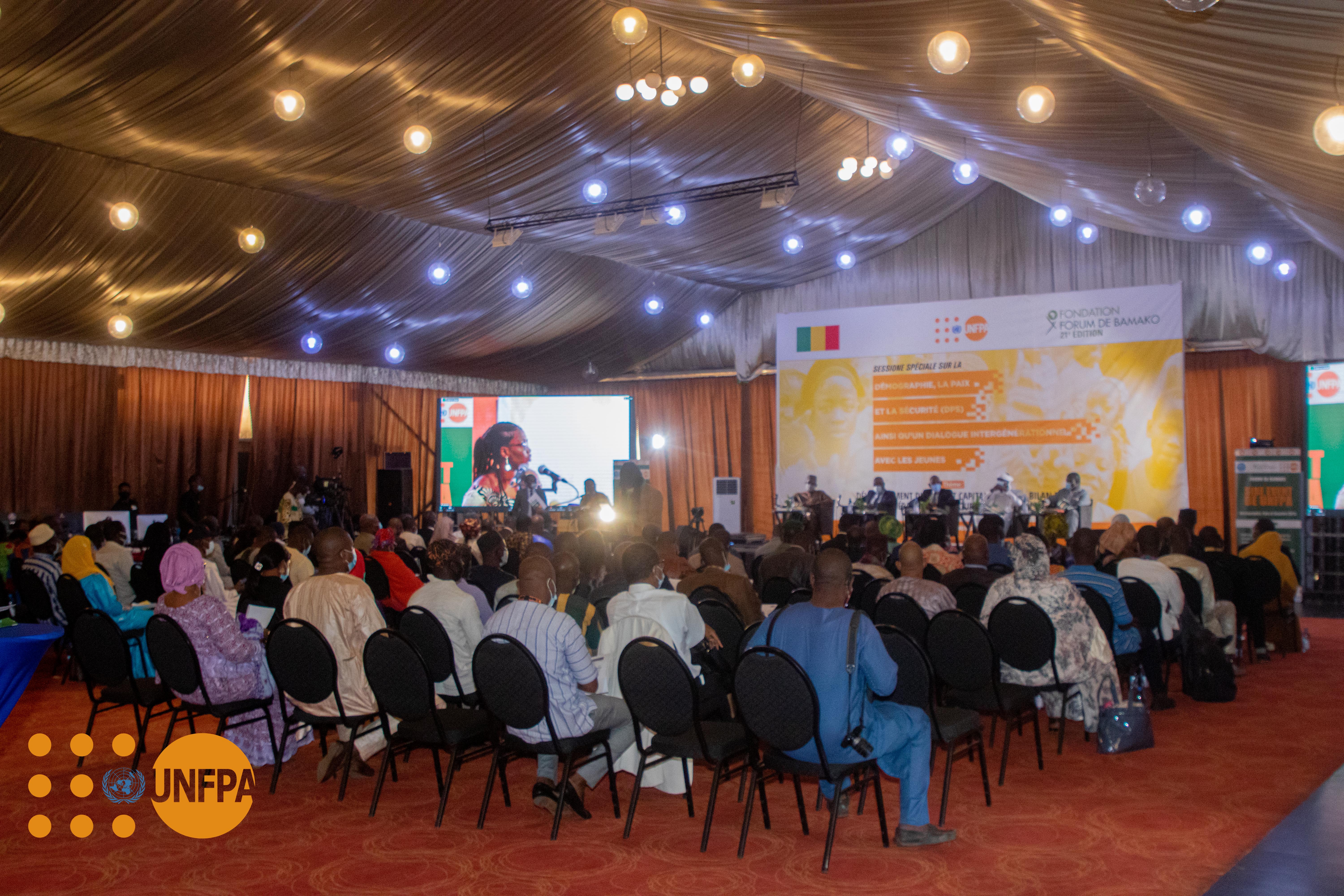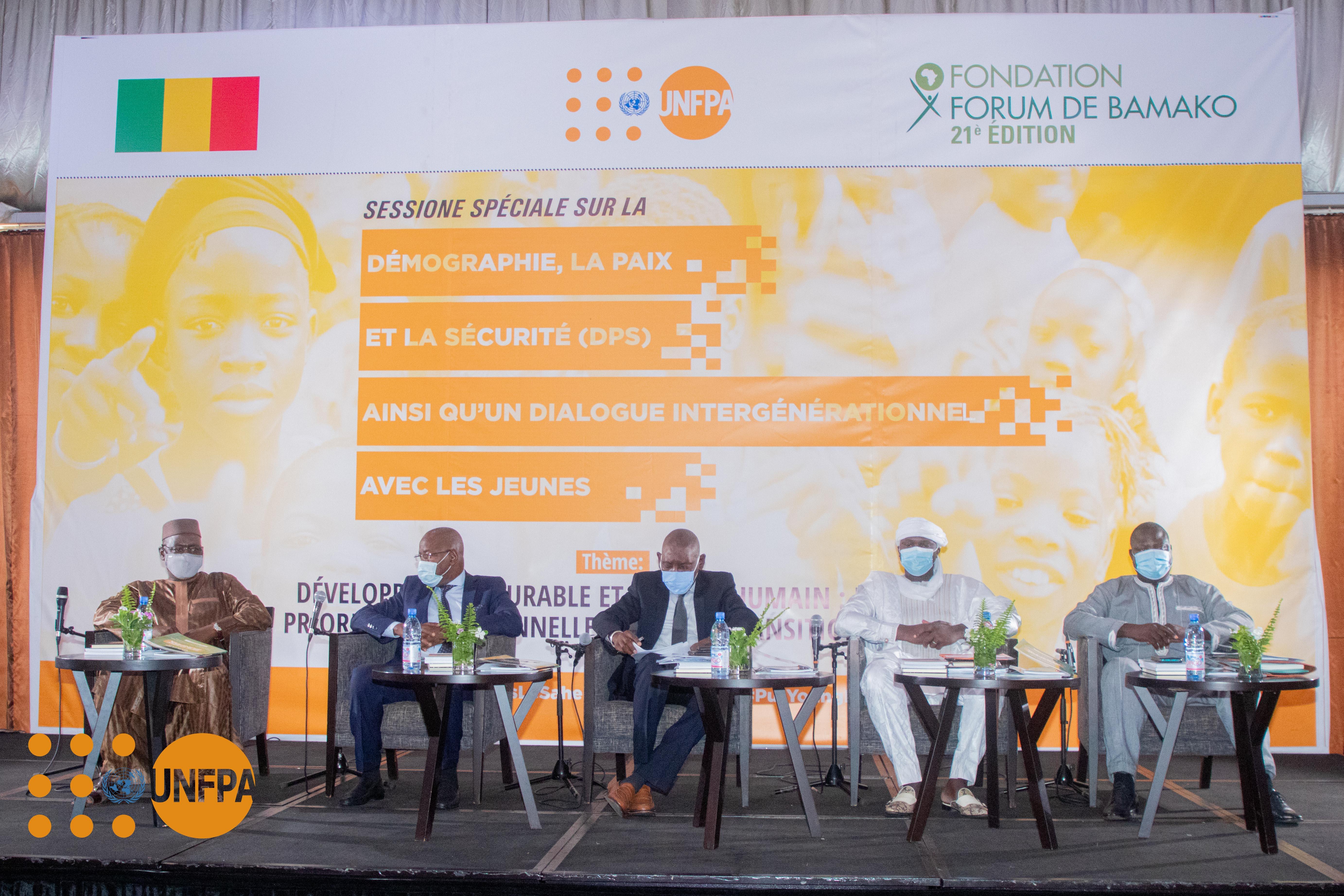Bamako, 21 May, 2021: The 21st edition of the Bamako Forum opened on 20 May in Bamako, Mali, on the theme: "Sustainable development and human capital: results and operational priorities for the Transition in Mali". A UNFPA Side Event on Demography, Peace and Security (DPS), and an Intergenerational Dialogue with young people preceded the Bamako Forum on 19 May 2021.
Delivering the keynote address at the opening ceremony, United Nations Population Fund regional director for West and Central Africa, Mabingue Ngom advocated for significant investments to strengthen Africa’s human capital, and particularly in the Sahel to overcome the cycle of insecurity.
Drawing on the example of Mali, which host of the 21st edition of the Bamako Forum, he remarked that: “Mali allocates 30% of its budget to security expenditure, to the detriment of investment in the health and education sectors, further increasing social demand needs, to which the State is unable to respond. "

According to Mr. Ngom several Sahel countries face the same scenario. He thus called for innovative partnerships to allow the African States to create the fiscal space conducive to investments favouring human capital development by reaping the Demographic Dividend.
This was the background against which UNFPA organized a special session on 19 May 2021. During the side event, UNFPA presented its work with governments of the Liptako Gourma countries, the statistical and research institutes on peace, in particular the ENSAE and PRIO, emerged from the evidence demonstrating the correlation between galloping demography which exacerbates tensions over resources causing security instabilities and peace in the Sahel.
According to Professor Alioune Sall and the Directors of Statistics of Burkina Faso, Mali and Mauritania, the international community would benefit from allocating resources and means to military operations and attacking the root issues of poverty.
During discussions on migration, UNFPA experts argued that more of the migration of young people is caused by economic reasons linked to the precariousness of financial systems. They proffered the need to offer them local perspectives.
To respond to this particular concern, Mabingue Ngom pleaded for scaling up the FassE project that the regional office is experimenting with in Senegal, in the commune of Gueule Tapée Fass Colobane.
According to Mr. Ngom “The FassE project can represent an alternative to development issues because it mobilizes partners to put them at the service of grassroots communities. Thus, it has made it possible to improve the commune’s medical platform and grant funding to around a hundred women from different cooperatives. Implementing the FassE-type initiative in each municipality should make it possible to resolve several problems with the communities.
The association of elected officials of Mali held a working session with the Mayor of FassE to draw inspiration from the model.
UNFPA presented its latest publication produced under the supervision of Mabingue Ngom, entitled, “Reaping the demographic dividend during emergence: The case of the Guele Tapee-Fass-Colobane commune.”
Other similar publications include:
- Peace and Security Demography: Crossed perspectives for a resilient central Sahel
- Goal 17 - Partnership: UNFPA's approach for transforming Africa and the world
Media contacts:
- Moussa Baba Coulibaly, UNFPA Mali Communication Officer; momcoulibaly@unfpa.org Tel: 223 66 71 30 60
- Habibou Dia, Media Specialist, UNFPA WCARO, dia@unfpa.org; Phone. +221786204513


